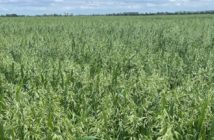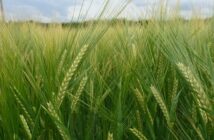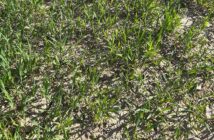For the first time in its eight-year history, this year’s Cereals Challenge has gone virtual – eight teams from Universities and Colleges from across England will compete to grow the best virtual crop of spring barley.
The Cereals Challenge is organised by crop production specialists Hutchinsons and farm business management company Velcourt, and aims to encourage a new generation of agronomists and farmers into the industry by offering them a real-time crop to manage.
At the Launch of this year’s Cereals Challenge on the 8th February in Solihull, Paul Hobson of Hutchinsons, explained the reasoning behind the change. “In previous years, teams have been given a real plot to manage at the Cereals Event site, however with such a geographical spread of teams, this disadvantaged those teams further away who may not have been able to get to the plots during the growing season. By creating virtual plots this makes it simpler and fairer for all.”
“Adopting the virtual approach has meant that we were able to offer a choice between two on-farm scenarios’: either as a high yielding feed crop on heavy soil in a black-grass situation, or as a moderate yielding malting crop on sandy soil with moisture limitations.”
“These scenarios reflect the situations that many growers are finding themselves in this spring. More and more spring barley is being grown across the country in response to the need for more diverse rotations as a result of increasing battles with black-grass, and the challenges facing the oilseed rape crop in light of the ban on neonicotinoids.”
“Their barley will still need to be grown and managed as if it were a ‘real’ crop and each team will still have complete responsibility for their crop – from choosing which variety to grow and drilling details through to making the real-time agronomy decisions on inputs,” emphasises Mr Hobson.
Judged by Keith Norman, technical director at Velcourt, and Dick Neale, technical manager of Hutchinsons, the plots will need to reflect each team’s agronomic recommendations. Teams will be asked to provide fertiliser and herbicide management plans, a PGR and pest management plan as well as a disease management plan, and most importantly will be asked to evaluate their appropriateness and timeliness for each recommendation, input cost management, estimated crop yield and quality.
“This competition gives final year agricultural students a flavour of making real time decisions ranging from in-season agronomy to market dynamics – all with the final gross margin in mind which is something that is difficult to teach in a classroom, “says Mr Neale.
It is the first time that a team from Nottingham Trent University has been in the Challenge. “We want to gain as many experiences across the arable sector as possible to broaden our knowledge and also to share the learnings from other colleges and universities,” explains team captain, Ben Theaker.
“We have chosen to grow a high yielding feed crop of the variety Scholar on heavy soils with black-grass, as we feel confident that we can control the black-grass by later drilling of the crop and using a cover crop of black oats, vetch and phacelia which will outcompete the weeds and improve soil structure. We plan to spray this off two weeks before drilling on the 25th March.”
The team from Newcastle University is also going for a high yielding feed crop of Scholar barley as they feel it is too risky to aim for a malting crop with only a £15/ha GM benefit. “If we don’t achieve the malting quality, we end up with a low yielding feed crop, so we are going for yield!” says Nick Lount, captain of the team.
However, Writtle College has opted to grow a malting barley on light sands. Team Captain Oliver Martin explains. “By growing a malting crop in Suffolk, we are close to malsters. We have opted for Octavia which is approved for brewing and malt distilling. At least we know that we can manage the weed control, as don’t have black-grass to worry about on the region’s lighter soils”
The winning team will be announced at the Cereals Event, at 5pm on the 14th June at the Hutchinsons stand, as part of the Guild of Agricultural Journalists Cereals Awards ceremony.
Follow the 2017 Cereals Challenge on Twitter @CerealChallenge where you can meet the teams and keep up-to-date with what is happening on the plots




